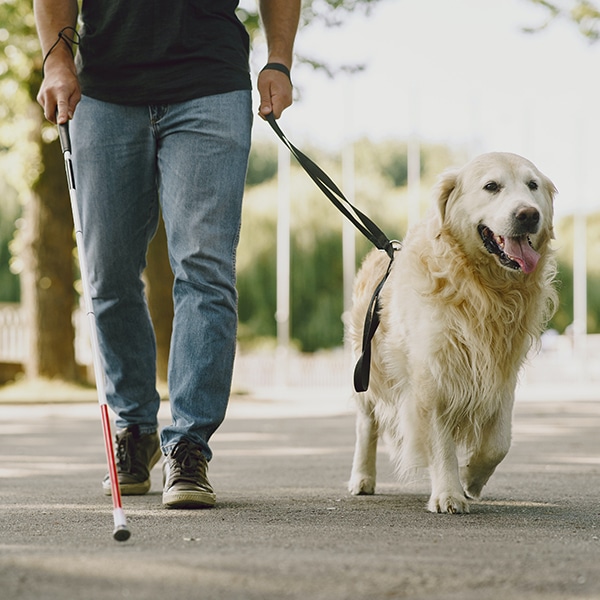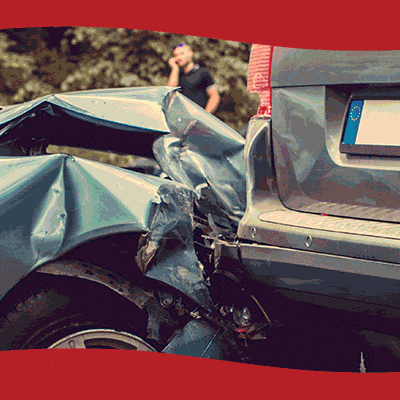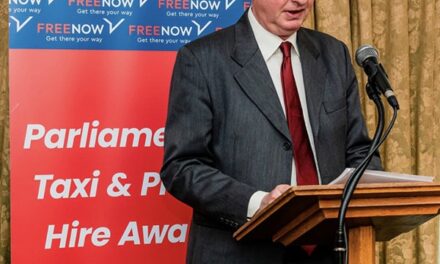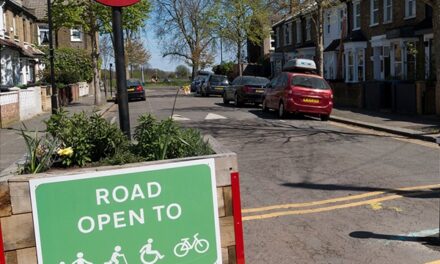For many disabled people, including people with a vision impairment, an assistance dog is a vital mobility aid to help them with their independence. As with other customers, guide and other assistance dog owners want to feel welcome when using your taxi or private hire service.
By law, disabled people accompanied by their working assistance dogs, including guide dogs, have the right to access taxis, shops, restaurants, and other places open to the public. In the case of taxis and Private Hire Vehicles (PHVs), refusing a person accompanied by a working assistance dog without a valid medical exemption certificate is a criminal offence.
This guidance is for drivers and other staff in the taxi and PHV sector and is for informational purposes only. For advice on the law, please consult with a solicitor or the organisations listed at the end of this guidance.
About guide dogs
Guide dogs are working animals, not pets, and their owners rely on them for independence and mobility. They have up to two years of intensive training and receive further training throughout their working lives. Guide dogs do not disrupt the everyday operation of businesses or services. They are trained to sit at their owner’s feet at all times, not to bother other people and not to climb on furniture.
Guide dogs will be recognisable from their harness, and many guide dog owners will carry an ID book with them. However, it is important to note that not all types of assistance dogs wear harnesses, and there is no requirement to carry ID.
It is also important to know that guide dogs and other assistance dogs can be different sizes and breeds. For more information about the different types of assistance dogs, please see Assistance Dog UK’s website.

What the law says
Disabled people including guide dog owners and other blind or partially sighted people have important rights under the Equality Act 2010 in England, Scotland and Wales, and the Disability Discrimination Act 1995 (DDA) in Northern Ireland.
The Equality Act and DDA in Northern Ireland provides for blind and partially sighted people to have the same right to access businesses and services as people who do not have a vision impairment.
This means that it is unlawful in all but the most exceptional circumstances to refuse access to a disabled person accompanied by a guide dog. It is also unlawful to provide an inferior level of service because of a guide dog, for example, only allowing guide dog owners to use cars that permit pets. You are also not allowed to impose additional charges, such as cleaning charges, because someone is accompanied by a guide dog.
In the case of taxis and PHVs, illegally refusing an assistance dog owner is a criminal offence. On conviction, operators and drivers could be liable to a fine of up to £1000 as well as court costs and a potentially a victim surcharge.
More recently, the Taxis and Private Hire Vehicles (Disabled Persons) Act 2022 includes a specific requirement for drivers to assist disabled passengers. For example, when assisting passengers with sight loss, drivers are required to assist their passengers identify and find the vehicle.
Allergies or a fear of dogs
You cannot refuse entry to an assistance dog owner because you fear or dislike dogs. Licensing authorities can issue certificates exempting taxi and PHV drivers from the duty to carry assistance dogs on medical grounds. These certificates must be clearly displayed in the vehicle.
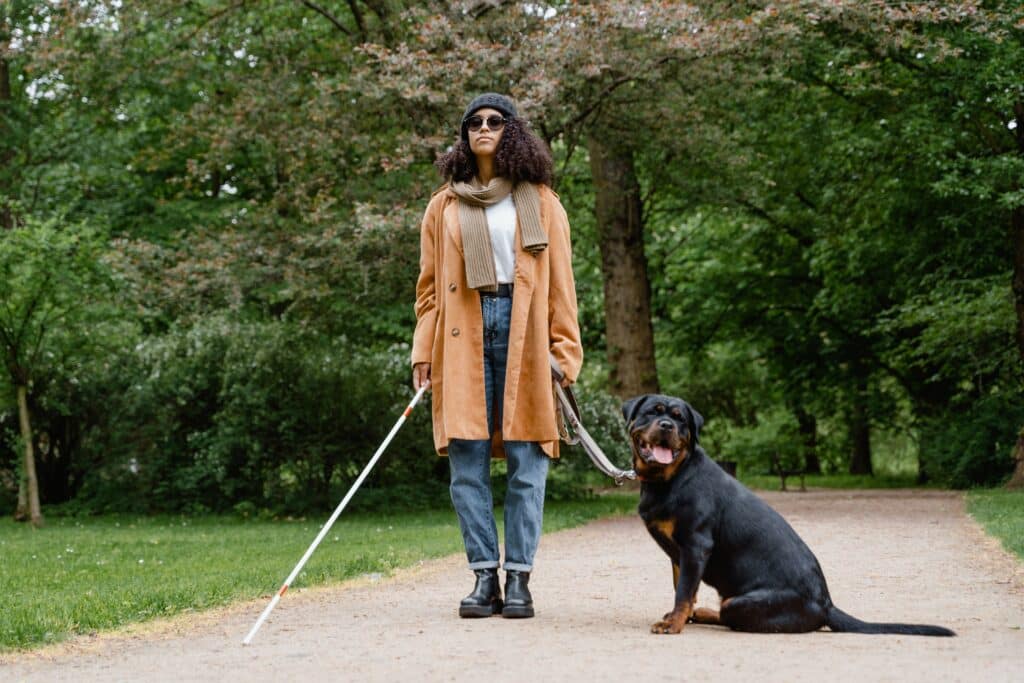
Hygiene
Guide dog owners are given training on how to maintain the extremely high standards of grooming which the dogs require, and the dogs are checked regularly by vets.
The Food Standards Agency (FSA) and Food Standards Scotland (FSS) have confirmed that guide dogs and other assistance dogs should be allowed entry to premises and services as their very special training means that they are unlikely to be a risk to hygiene in these premises
Religious and cultural considerations
Religious or cultural beliefs can raise sensitive issues relating to dogs. However, religious grounds or cultural beliefs cannot be used to exclude guide dog and assistance dog owners.
Many religious and cultural groups have also agreed that assistance dogs are allowed in venues where they might not otherwise have been allowed. For example, The Islamic Shariah Council said that Muslim businesses should accept assistance dogs.
Additional advice on supporting guide dog owners
We have produced guidance for taxi and PHV staff on assisting passengers with sight loss.
Guide Dogs also provides free online training on sighted guiding which can help businesses make sure they are providing a high-quality service for all people who are blind or partially sighted. To find out more or book a place please email [email protected]

